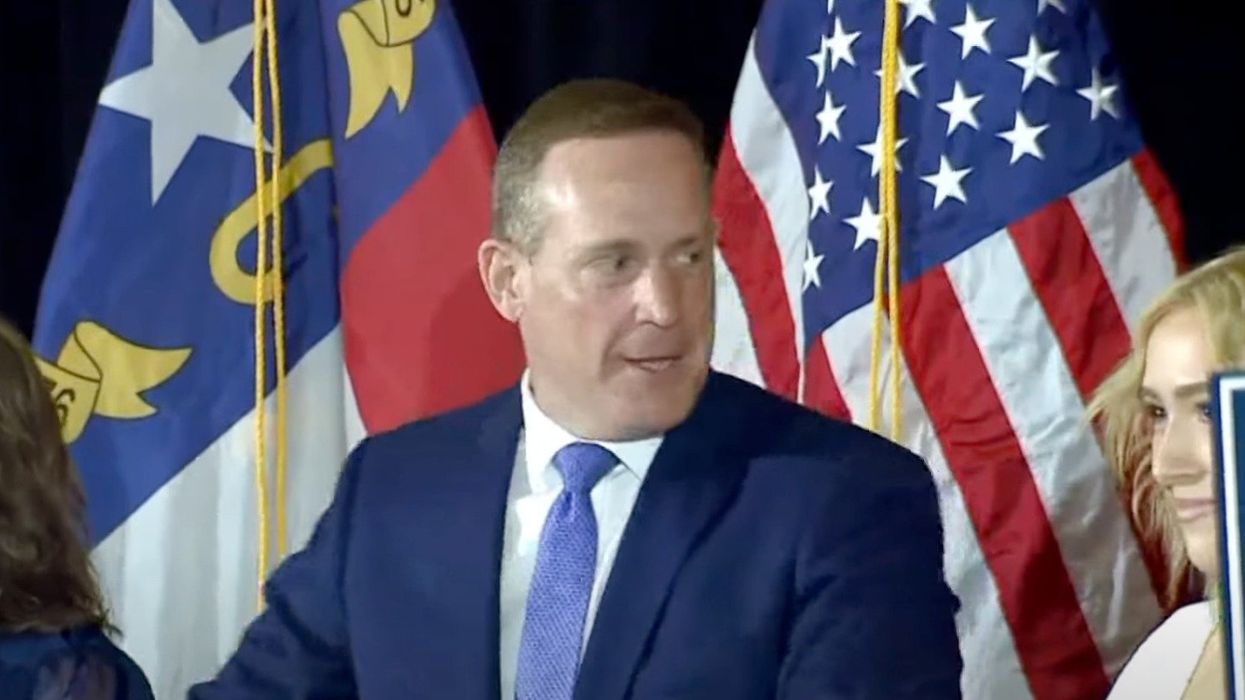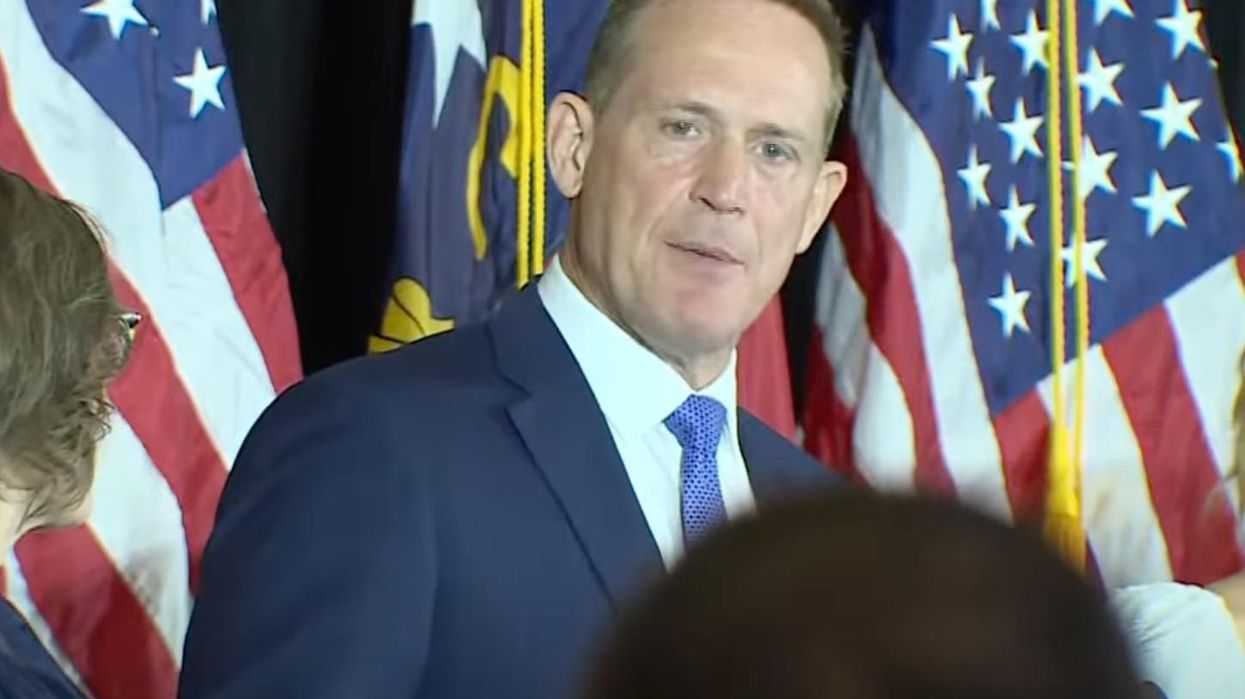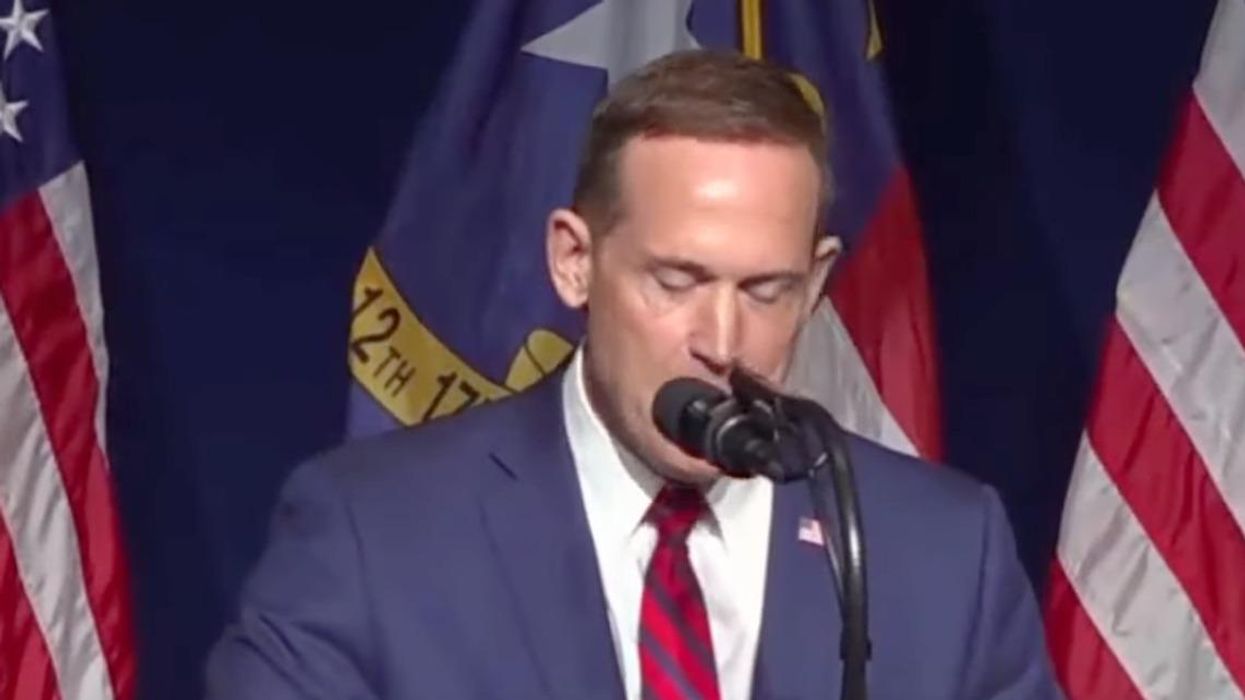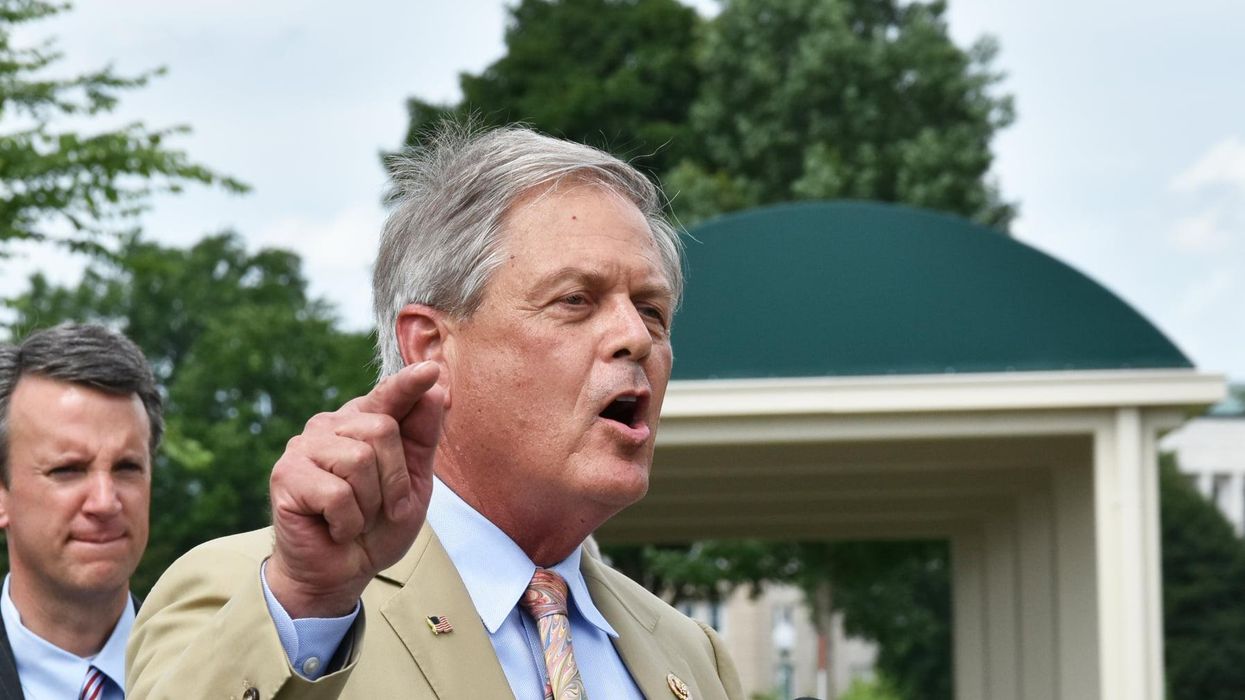Republicans Demand Billions For Trump's Botched Border Wall
Congressional Republicans want to force the federal government to spend billions of taxpayer dollars to restart former President Donald Trump's failed border wall project.
First-term Republican Sen. Ted Budd of North Carolina told Fox News Tuesday that he is introducing the Build the Wall Now Act, which would require President Joe Biden's administration to resume construction of a massive wall along the nation's southern border. Fox said that the proposal, co-sponsored by Sens. Mike Crapo (R-ID), Ted Cruz (R-TX), Steve Daines (R-MT), James Risch (R-ID), and Thom Tillis (R-NC), would unlock more than $2.1 billion for wall construction and overrule any "legal impediments" to the process by codifying legal waivers issued by Trump in the process.
According to Fox, Budd said: "My Build the Wall Now Act ends this administration's excuses and forces them to restart wall construction immediately. It's time for a comprehensive solution to end the Biden Border Crisis, and this bill does just that."
Rep. Clay Higgins (R-LA) introduced a similar proposal in the House of Representatives in January, with 38 Republican co-sponsors.
Newly sworn-in Alabama Republican Sen. Katie Britt on February 9 introduced her own proposal to appropriate $25 billion for construction of the wall. In a press release, Britt said her bill, which has six GOP co-sponsors, would be funded entirely "by eliminating the entitlement benefits and tax credits that illegal immigrants are using and fining those making illegal entry into the United States." The nonpartisan Congressional Budget Office has not yet evaluated that claim.
Each of the bills is intended to revive a project that was a signature broken promise of the Trump administration.
During his 2016 campaign, Trump repeatedly told voters that he would quickly build a massive wall along the entire U.S.-Mexico border and that he would force Mexico to fund every penny of the project.
"We'll build the wall, don't worry, I promise. We'll build the wall. I promise, we will build the wall. If there's ever a second term, you'll say, Man, he got that wall built fast, we're going to put him up," he said at a rally in Waterbury, Connecticut, in April 2016. "So we'll see. We'll build the wall, don't worry."
That did not happen: Mexico declined to fund the project. In his quest to fund the wall, Trump tried to coerce Congress by forcing a partial government shutdown; he backed down after 35 days. Finally, he siphoned off billions of dollars in 2019 that had been appropriated for other construction and for military families, citing emergency powers.
Even after he found funding, Trump oversaw the building of just a few miles of new barriers, with most construction going to reinforce existing fencing. As of September 2020, USA Today found that of the 300 miles of wall that the administration claimed to have built, just 5 miles of it were new.
Biden ran in 2020 on a promise to halt the project, saying not another foot of wall would be constructed on his watch. After his inauguration, he immediately stopped construction and ordered that the funds that had been allocated for the project be redirected to others, including environmental cleanup at the wall construction sites.
Since assuming the majority in the House they won in the November 2022 midterm elections, Republicans have demanded significant cuts to "wasteful Washington spending" and even threatened to force a default on the national debt to force cuts.
But at the same time, Republican lawmakers have pushed for new policies that would make the budget deficit even larger by cutting revenue and increasing spending. The bills aimed at renewing construction of the wall on the southern border could add billions of dollars to the national debt.
Bloomberg News reported on Monday that House Speaker Kevin McCarthy and several members of his caucus will visit the border this week to highlight illegal immigration.
"House Republicans can see first-hand how unlawful border crossings have sharply declined thanks to President Biden's new border plan," White House assistant press secretary Abdullah Hasan told Bloomberg.
"They can also see the additional progress that could be made if Republicans in Congress stop making this issue a political stunt and actually join the President in advancing real solutions – like comprehensive immigration reform," Hasan added.
Published with permission of The American Independent Foundation.
Reprinted with permission from American Independent.












